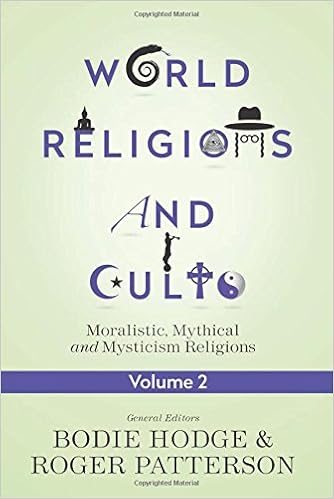Islam
Definition
Islam refers to the specific philosophy of the Muslims, a monotheistic and unitarian belief system declared by Muhammad in 610 AD and described in the book known as the Qur'an.
Keywords: Islam, Philosophy, Unitarianism, False, Veracity.
Veracity
Islamic claims are false .
Proof
Islam is a form of unitarianism.
Premise 1: All unitarian philosophies are false.
Premise 2: Islam is a unitarian philosophy.
Conclusion: Therefore, Islam is false.
Since unitarian claims are false, Islam is also false.

Gilbert Guttlebocker, Defender of Dragons
Riveting, yet absurd; romantic, yet innocent; Gilbert Guttlebocker, Defender of Dragons is a little Roald Dahl, a little Harry Potter, and a little Chronicles of Narnia, all rolled into one. Timothy McCabe collaborates with the great Benedict Ballyhoot to bring you the novel of the century!

In Printed Form
Along with numerous other authors including Don Landis, Bodie Hodge and Roger Patterson, Timothy McCabe contributes analyses of various world religions and cults in this volume from Master Books.
Other Writings
"What is your standard of truth? How do you determine what is true?"
1. God Himself is the standard of truth. (John 14:6; Exodus 34:6; 2 Samuel 7:28; Psalm 25:10; Isaiah 65:16; Ephesians 4:21; Titus 1:2; 1 John 5:6) 2. Because of this, when God reveals things to us, we know that what He reveals is true. The Bible stands as an authoritative communication to us from God Himself, and we can often discern truth or falsehood simply by comparing a particular claim with Biblical revelation.
Continue reading...
Rationalism is false: a simple proof
Rationalism describes any philosophy that claims that beliefs and opinions should always be logical, deductive conclusions rather than being based on experience, observations, religious teachings, or divine revelation.
Continue reading...
"Why doesn't prayer work, when the bible promises that it will (John 14:14, for example)?"
In John 14:14, Jesus says "If you ask Me anything in My name, I will do it." In modern western "Christian" culture, the idea of praying in Jesus' name is often understood to mean appending "...in Jesus' name" to the end of our prayers.
Continue reading...